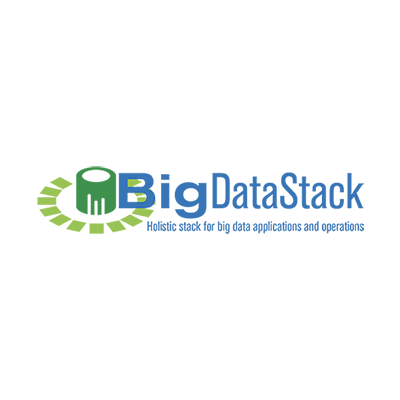 UBITECH is participating at the kick-off meeting, in Haifa and Tel Aviv, Israel (February 6-8, 2018), of the BigDataStack Research and Innovation Action, officially started on January 1st, 2018. The project is funded by European Commission under Horizon 2020 Programme (Grant Agreement No. 779747) and spans on the period January 2018 – December 2020. The BigDataStack H2020- project aims to deliver a complete high-performant stack of technologies addressing the emerging needs of data-intensive operations and applications, which is based on a frontrunner infrastructure management system that drives decisions according to data aspects thus being fully scalable, runtime adaptable and performant for big data operations and data-intensive applications.
UBITECH is participating at the kick-off meeting, in Haifa and Tel Aviv, Israel (February 6-8, 2018), of the BigDataStack Research and Innovation Action, officially started on January 1st, 2018. The project is funded by European Commission under Horizon 2020 Programme (Grant Agreement No. 779747) and spans on the period January 2018 – December 2020. The BigDataStack H2020- project aims to deliver a complete high-performant stack of technologies addressing the emerging needs of data-intensive operations and applications, which is based on a frontrunner infrastructure management system that drives decisions according to data aspects thus being fully scalable, runtime adaptable and performant for big data operations and data-intensive applications.
BigDataStack promotes automation and quality and ensures that the provided data are meaningful, of value and fit-for-purpose through its Data as a Service offering that addresses the complete data path with approaches for data cleaning, modelling, semantic interoperability, and distributed storage. BigDataStack introduces a pioneering technique for seamless analytics which analyses data in a holistic fashion across multiple data stores and locations, handling analytics on both data in flight and at rest. Complemented with an innovative CEP running in federated environments for real-time cross-stream processing, predictive algorithms and process mining, BigDataStack offers a complete suite for big data analytics.
Within BigDataStack, UBITECH will drive the implementation of (a) the information-driven networking framework that will incorporate data-centric networking mechanisms combined with software defined networking technologies for their implementation and management over virtualised resources, delivering technologies for traffic engineering and network management for data operations and data-intensive applications; and (b) a toolkit allowing big data practitioners both to ingest their analytics tasks (through declarative methods for expressing the information extraction methods and predictive data services) and to set their requirements and preferences as quality metrics, affecting the application dimensioning, deployment patterns generation and prioritization, application components and data services configuration, quality monitoring and enforcement, and information-driven networking. Finally, UBITECH will contribute in the development of an homogeneous and coordinated data-driven orchestration of application components and data services, incorporating mechanisms to estimate and formally describe the synergies between the different infrastructure parameters, metrics and KPIs, and the application- and data- related aspects (e.g. used data analytics functions, data I/O volume, data flow predictions, etc.).


